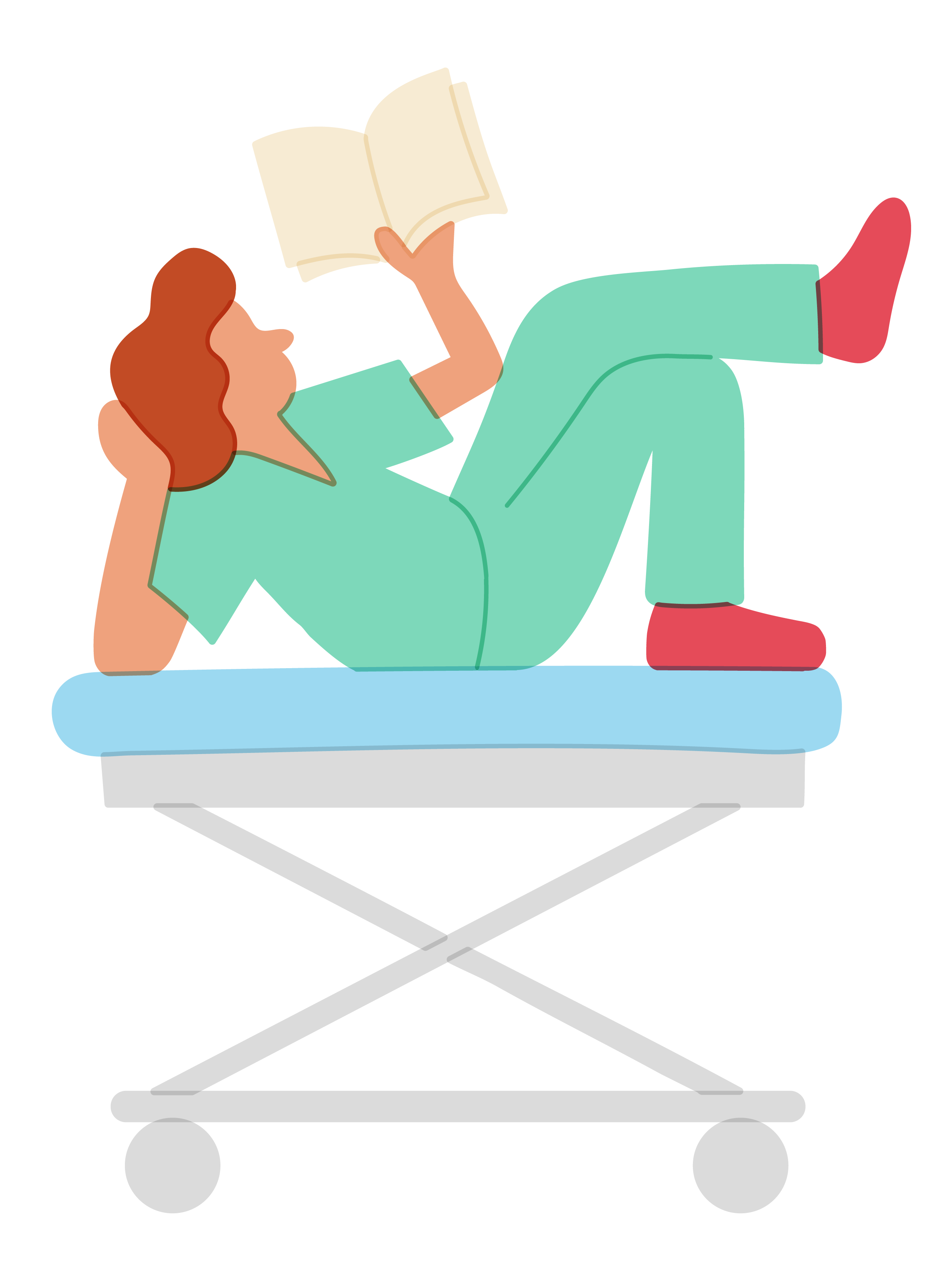Believe it or not, if you’re interested in medicine or another health field, you’re not limited to reading textbooks and Anki cards. If you are, you might be missing out on a wealth of information that, in addition to being a source of new insights, is also enjoyable to read. Here I provide some of my favorite books related to medicine and health sciences that I’d love for others to enjoy as well.
Immune: a journey into the Mysterious System that Keeps You Alive by Philipp Dettmer

Many are aware of the YouTube channel Kurzgesagt – In a Nutshell, but it might be a pleasant surprise to learn that the channel’s colorful and engaging art style is also available in book form. Immune is a great way to satisfy an interest in the immune system while not getting stuck in a black hole of in-depth immunoglobulins and cascade flowcharts. While still retaining a complexity that thrives off a basic understanding of biology, Immune is an approachable introduction to immunology that is much more riveting to the everyday reader than traditional textbooks.
When Breath Becomes Air by Paul Kalanithi

When Breath Becomes Air feels immensely heavy in comparison to the fun portrayal of the immune system in Immune. While the prose is natural and easy to read, the emotion that Kalanithi evokes is tremendous. There will be times when reading Kalanithi’s narrative will feel incredibly difficult, but you will not be able to stop. When Breath Becomes Air is a stark reminder of the beauty of human life and how unexpectedly it can be put in jeopardy.
How We Die: Reflections of Life’s Final Chapter by Sherwin B. Nuland
 The title gives it away this time, but this is another read that won’t exactly invoke feel-good bubbly sensations. While When Breath Becomes Air focuses on Kalanithi himself, How We Die is a reflection on patients in general from Nuland’s point of view as a physician. Originally published in 1994, it reveals some aspects of medicine that we might now find archaic while also conveying a strikingly pertinent perspective on illness and death that holds up thirty years later. Neatly mixing themes of medicine, bioethics, and philosophy, Nuland provides a glimpse into our own last moments as well as those of our patients and loved ones.
The title gives it away this time, but this is another read that won’t exactly invoke feel-good bubbly sensations. While When Breath Becomes Air focuses on Kalanithi himself, How We Die is a reflection on patients in general from Nuland’s point of view as a physician. Originally published in 1994, it reveals some aspects of medicine that we might now find archaic while also conveying a strikingly pertinent perspective on illness and death that holds up thirty years later. Neatly mixing themes of medicine, bioethics, and philosophy, Nuland provides a glimpse into our own last moments as well as those of our patients and loved ones.
Complications: A Surgeon’s Notes on an Imperfect Science by Atul Gawande
 Complications may be best described as a collection of case studies that portray the ambiguity of medicine. Each chapter is an engrossing story, describing medical cases many people have likely never heard of. Gawande tells how years of training cannot possibly prepare physicians to treat every patient perfectly. Perfection, rather, is an impossibility. The experiences that Gawande shares in Complications may be terrifying in how they expose how arbitrary healing can be, but they are also comforting in how they reveal the humanity of physicians’ practice of the art of medicine.
Complications may be best described as a collection of case studies that portray the ambiguity of medicine. Each chapter is an engrossing story, describing medical cases many people have likely never heard of. Gawande tells how years of training cannot possibly prepare physicians to treat every patient perfectly. Perfection, rather, is an impossibility. The experiences that Gawande shares in Complications may be terrifying in how they expose how arbitrary healing can be, but they are also comforting in how they reveal the humanity of physicians’ practice of the art of medicine.
The Immortal Life of Henrietta Lacks by Rebecca Skloot
 More so than any other book on this list, The Immortal Life of Henrietta Lacks brings to light the historical injustices of medicine and our health institutions and how those injustices still strongly reverberate today. While the book revolves around Henrietta Lacks (particularly, how her cells were taken for research likely without her consent), it is also a story of her family and of Skloot herself. The Immortal Life of Henrietta Lacks invokes bioethical questions and themes of social determinants of health that may leave readers with more questions than answers about the society we live in. Despite the difficult topics and experiences that Skloot describes, there is a deep humanity in each of the characters that becomes richer the more you read.
More so than any other book on this list, The Immortal Life of Henrietta Lacks brings to light the historical injustices of medicine and our health institutions and how those injustices still strongly reverberate today. While the book revolves around Henrietta Lacks (particularly, how her cells were taken for research likely without her consent), it is also a story of her family and of Skloot herself. The Immortal Life of Henrietta Lacks invokes bioethical questions and themes of social determinants of health that may leave readers with more questions than answers about the society we live in. Despite the difficult topics and experiences that Skloot describes, there is a deep humanity in each of the characters that becomes richer the more you read.


Comments